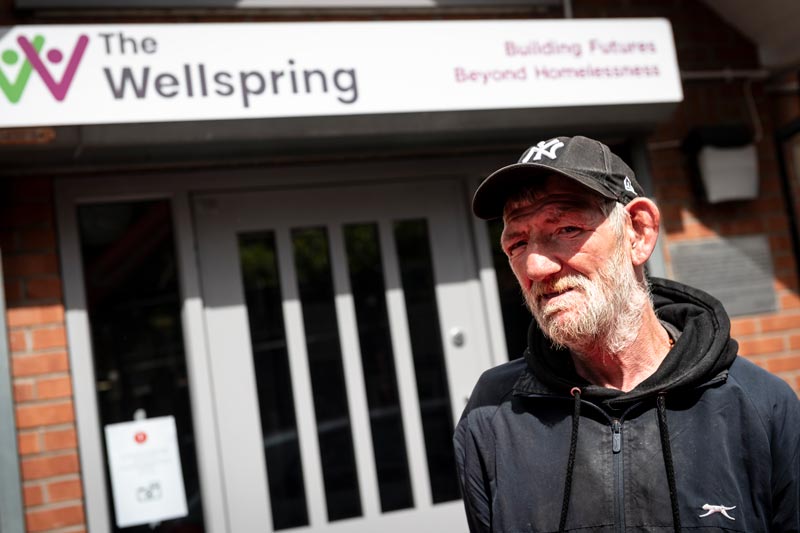We stand for dignity
As we stand for dignity and respect for all, the way we talk about people experiencing homelessness is vitally important. We invite you to read our guidelines below for how to refer to our service users, especially when sharing our work online, with colleagues or on social media.

How to refer to our service users
Use people-first language
Rather than using the term ‘homeless person’, which can imply that homelessness is the only defining characteristic of an individual, phrases like ‘person experiencing homelessness’ and ‘person without a home’ can be more helpful.
It’s important to remember that people experiencing homelessness are just that… people. People who are defined by many things and not just their current circumstances.
Remember that homelessness is not a bad word
Talking about homelessness is vital for challenging the judgement and stigma that people experiencing homelessness sadly experience every day.
Speaking to your friends or family or organising an event to raise money for The Wellspring at work can be a great start to challenging this stigma whilst normalising talking about homelessness.
Challenge your own and others limiting beliefs about homelessness
It’s okay to admit that you may have some prejudices about people experiencing homelessness but what’s not okay is continuing to believe negative stereotypes without challenging this.
At The Wellspring we see first-hand that it is almost never the case that someone without a home has reached that circumstance just because they’re lazy or struggling with substances, as some people unfortunately still believe.
Sharing our work, case studies and statistics with others can open a dialogue where more people can understand the various causes of homelessness as well as understand that it is not just about rough sleeping.